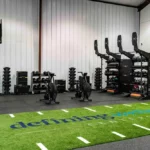Substance Abuse Hotline for Texas Residents
A drug abuse hotline or helpline is a toll-free telephone number to call for confidential information on treatment for drug and alcohol addiction. The professionals who operate a drug abuse hotline allow callers to remain anonymous as they receive helpful information, no matter what type of substance use issue they are struggling with. Callers can also receive suggestions for helping friends and family members who are dealing with addiction issues.
Drug abuse hotlines are not monitored by police at any time. The representatives who answer the calls are often volunteers who have been trained to help those who are looking for answers, advice, and/or help to find the right treatment for their specific issues. If there is a concern for the caller’s immediate safety and well-being, then the representative will direct them as to what to do to get help right away and can assist them in doing so.
Substance abuse hotlines in Texas are usually accessible 24 hours a day, seven days a week, including holidays. They provide answers to topics related to substance abuse, detox centers, treatment centers and programs near you, and more. If a question arises that they don’t know the answer to, a hotline operator will utilize the resources at their disposal to find the information. No one is left hanging with unanswered questions, and no one is given off-the-cuff misinformation.
Callers can discuss a number of drug-related subjects, including information on treatment facilities that provide inpatient/outpatient services. Once an assessment has been done by a doctor or other health care professional to determine the type of treatment that will be most beneficial to the individual dealing with a substance use issue, information on facilities that provide the recommended level of care will be vital.
Addiction Hotlines Exist Only to Help
Calls to the hotline are handled by caring, compassionate representatives who are there to help people find the most effective treatment for their particular abuse issues. Many of the people who work at these helplines have experienced addiction themselves and have successfully overcome it. They are there to offer information and support to others so that they, too, can be successful in overcoming addiction. No caller will ever have to fear being judged, belittled, or shamed for their drug use. There is only help and compassion to be found by calling a drug abuse hotline.
When you call the hotline, the representative you speak with will ask you some questions about yourself and your substance use issue. Some of the questions may feel invasive or overly personal, but rest assured that the helper is only asking the questions that are necessary for them to assess your specific situation and make the best determination for your particular needs.
As with everything else involving your call, all information you share will remain completely private and anonymous. Typical questions include:
• Are you in an emergency situation? Is your life in danger?
• Which substances are you struggling with?
• How often are you using the substance(s)?
• How long have you been using the substance(s)?
• Have you ever tried to get help for your substance use issue before?
• Do you want to get treatment for your substance use issue?
Please take your time and answer the representative’s questions as completely and honestly as possible. This will make it possible for them to be able to get you the most effective help for your unique needs.
No one who calls a drug addiction hotline will ever be turned away. Everyone can derive some amount of help from the information offered there. Many people call with questions that they don’t feel comfortable asking anywhere else. They may be hiding their drug use from family, friends, their doctor, pastor, etc. They may also be in denial of the fact that they truly have a drug problem. Hearing the answers to their questions from those “in the know” can make all the difference.
Every person manning the hotline phones is unbiased, completely nonjudgmental, and eager to help. They have been trained to ask the right questions to then provide the caller with the information that will make it possible for them to find the help they need.
Signs of Substance Abuse
Substance use disorder looks different for every person because all of us are unique individuals. Even so, there are certain factors that are common to all substance users to some degree. These factors include:
• Experiencing symptoms of withdrawal
• A need to continue using the drug(s) of choice
• Sleeping at unusual times
• Avoiding responsibilities at home/work/school
• Spending a significant amount of time alone
• An inability to maintain healthy relationships
• Becoming unconcerned with personal care and hygiene
• An increased tolerance to their drug(s) of choice
• No longer enjoying once-favorite activities
• Breaking the law to obtain drugs or money for drugs, or stealing from family or friends
• Spending more and more time using drugs
These are only some of the warning signs of active drug addiction. A hotline representative will speak with the caller about these and other symptoms to ascertain whether addiction or dependence is present.
Sometimes, a person will hesitate to call because they fear being told that in order to get help, they must go into an intensive, lockdown type of drug treatment program, or they fear that they are going to end up in jail because of something they have done related to their drug use. No one working at a drug abuse hotline is going to try to force you into any kind of program, and they are certainly not looking to get information from you to try to have you arrested. The decision as to what kind of treatment to pursue to aid you in overcoming your substance use issue will be entirely up to you. The hotline helpers are only there to give you information and to help you make an informed decision so that you can find the best type of treatment for you personally.
There will be no pressure when you call and nothing to make you feel cornered or afraid. The only goal is to be of all possible assistance to you. All information obtained by the hotline representative will remain 100% confidential at all times and will only be used to direct the caller to the best source of help for their specific needs.
Callers Ask About Treatment Options
Representatives are ready to answer any and all questions callers may have that are pertinent to identifying their level of addiction and the various types of help that are available to them based on their needs. They are able to share the following options with the caller:
12-step programs – A 12-step program involves meetings, generally available daily if needed. They are based on a wide range of various types of substance use. These meetings are not overseen or conducted by counselors or other types of health care professionals or authorities but rather by other recovering addicts who know firsthand the importance of developing and maintaining a network of fellowship, support, social connection, and spirituality (not religion) in the recovery process.
Cognitive behavioral therapy – This intensive treatment works by helping the individual struggling with addiction to develop the skills they will need in order to make important changes in their life. cognitive behavioral therapy teaches those battling substance use issues how to recognize unhealthy thoughts and ideas that drag them down and keep them trapped in their addiction. They learn healthy and effective ways to overcome these kinds of thoughts by developing problem-solving skills and positive techniques that will make it possible for them to turn away from drugs in the future.
Contingency management (aka Positive Reinforcement) – Contingency management uses rewards and positive reinforcements to help the individual to stay motivated to remain drug-free.
Motivational development – This approach to treatment encourages the individual to stay clean by teaching them to develop their own motivations for remaining drug-free, particularly in those who seem hesitant to end their addiction or are doubtful that treatments will work.
In some instances, medications can be used to help relieve the cravings for drugs, to stop the effects of drug use, or to bring relief from the symptoms of withdrawal. All of these things can interfere with the individual’s concentration and ability to stay focused and working toward their recovery.
A number of alternative treatments are also available and have proven to be quite effective, especially when used in conjunction with other treatment options. They include holistic practices such as yoga, acupuncture, meditation, music/art therapy, and equine therapy. Many treatment centers have become aware of the benefits of these types of treatment and have incorporated them into their own recovery programs.
Is Making the Call Really Necessary?
Oftentimes, people are unsure whether they should call a drug addiction hotline at all. They may be afraid that someone will find out, or that they will somehow be identified and labeled in a system somewhere. Many times, a person will have convinced themselves that they don’t have a substance use problem at all and that they are certainly not addicts.
No one who calls a drug addiction hotline will ever have their identity or personal information shared with anyone. All information always remains completely confidential, including after the call ends. There is nothing to fear as absolutely no one will know of your call or anything you have discussed with the representative.
As for the belief that there is no addiction present and no cause for concern, this is one of the biggest lies the drugs want you to believe. The claws of addiction will keep you firmly in their grip as long as you remain in denial. Believing that no dependence or addiction exists is usually the No. 1 indication that there is, in fact, a serious problem.
Another common belief spurred on by substance use disorder is that the individual can control their drug use and that they can stop whenever they want and just walk away. This is another falsehood perpetuated by the addiction in order to drag you down further and further.
The time to call is the very minute that you give it a moment’s consideration. There is no reason to wait. Call and speak with someone who can help you to clearly see what is really going on and who can guide you to the help you need to overcome the problem, put it behind you, and move on to a healthy, happy future.
Trusting the process that begins with a call to a drug abuse helpline can feel like an impossible step to take, but once you have the phone in your hand, you will find yourself speaking with someone who wants to help. Calling a drug abuse hotline is the perfect way to remain anonymous, which makes it easy to open up and share the details with the caring, compassionate person on the other end of the line. We understand that speaking to someone face-to-face about something so sensitive can be too much for many people who are struggling with substance use issues, but talking on the telephone is easy for most everyone. It provides both an outlet and a level of privacy.
Getting the Help You Need
At Defining Wellness Centers, nearly two decades of team experience and a wide range of evidence-based treatment methods come together to ensure recovery. Our philosophy is that addiction treatment and recovery are part of a learning process, and recovery is a whole new way of life. Proven technologies and innovative therapeutic programs are put into practice to provide comprehensive treatment for everyone who needs it.
Defining Wellness was created with two main goals as the focus: to share compassion, love, and understanding with clients and to utilize cutting-edge methods and technologies to treat addiction issues. The end goal is to see clients recover and develop into their best selves through balance and emotional wellness. If you or a loved one is struggling with a substance use disorder, reach out to our team today to learn how we can help.



















